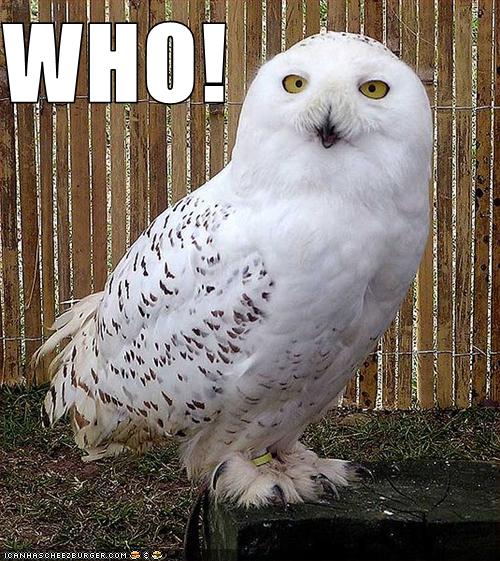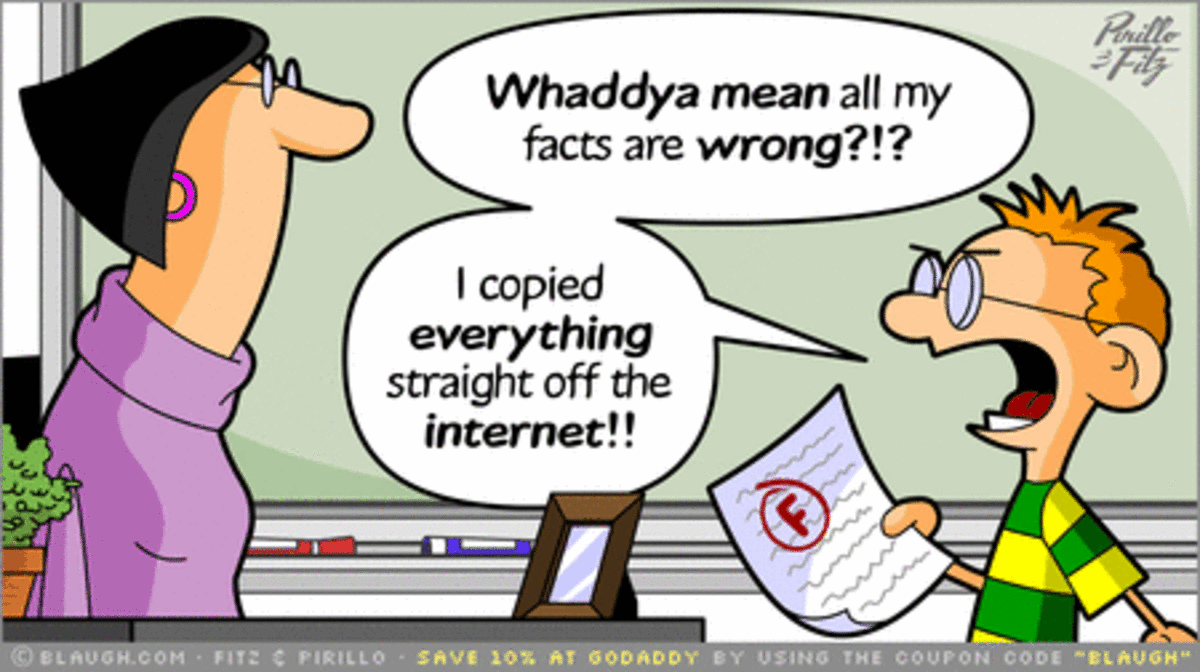Who or That - English Grammar and Idioms
He That Which Meant Who?
Certain grammatical rules for writing and editing in English differ by country, but also sometimes by regions.
Some language rules can change among academic writing, business writing, and popular fiction writing as will. As writers of some experience, we can even create and cause new words and new rules to be adopted at large.
The battle of Who and That is at hand today and it is baffling many writers and readers. The factors at war are the written rules and the academic rules that I have been required to follow in certain phases of my career. This experience is no doubt shared by many people.
During advanced degree studies and related article writing, the pertinent rule of grammar was to always use the word "that" in the following type of communication:
- He was the driver that crashed the car last night.
- The negative stimulus that caused an allergic reaction was eliminated from the study.
- That is a challenge that cannot go unmentioned.
- Those are to be the students that distribute the brochures throughout the community.


The Rules
I find written rules to the contrary of my own experiences in academic studies. Some websites state that "who" is to be used with any person or people and "that" should be used with inanimate objects. The question of animals is not answered. For example, should Lilian Jackson Braun's The Cat Who... mystery series be renamed The Cat That...?
At the same time, I find in articles across the Internet and in some classrooms statements like these:
- The tables whose leg is marred needs to be repaired.
- The book to be read is the one whose cover is blue.
- The findings of the study, whose results are laughable, must be replicated before they can be considered generalizable to the larger population.
I think all of these uses of "who" are incorrect - at least sound strange - but, several grammar referecnes state that it is OK, because there is no plural of that. However, I was trained to edit the above sentences in this manner:
- The tables, the leg of which is marred needs to be repaired.
- The book to be read is the one with the blue cover. More simply: Read the book with the blue cover. [No who or that at all in either case.]
- The findings of the study, the results of which are laughable, must be replicated before they can be considered generalizable.
Thoughts From Some Experts
American Heritage Dictionary Third edition.Boston: Houghton Mifflin, 1993, p. 1540: "It is entirely acceptable to write either the man that wanted to talk to you, or the man who wanted to talk to you."
Dr. Grammar: That or Which or Who? -- Do not use which to refer to persons. Use who instead. That, though generally used to refer to things, may be used to refer to a group or class of people.
[Examples:]
- The player who [not that or which] made the basket at the buzzer was named MVP.
- The team that scores the most points in this game will win the tournament (Hacker, A Writer's Reference 136).
http://www.drgrammar.org/faqs/#40; retrieved March 30, 2010.Purdue OWL (I love owls, don't you?), the Online Writing Lab, offers this key:
- People are "who" or "that" and things are "that" or "which."
- Plurals for people and things may be either "whose" or "of which. http://owl.english.purdue.edu/owl/resource/645/01/; retrieved March 30, 2010.

Recommendations
Considering all of the possibilities, I think it best for you choose one consistent way of writing for the target audience you want to reach and in the milieu in which you find yourself.
An easy method is to always use who for people and that for objects, decide on what to do about animals, and stick to your system. The Cat Who Came to Breakfast would not be as humorous and catchy it the word that were used instead of who.
If you are working with a teacher, a professor, a doctoral review panel, an editor(s) or a boss(es) that has authority over your written word, find out what grammar rules they are using and use them or persuade them to use yours - but at least use the same ones consistently. English is difficult enough!
Some Additional English Grammar Information
- Frustrating English Grammar: Which Is Correct: "in-person" or "in person"?
Which phrase is correct in proper English grammar - - Lay, Lie, Sit, and Set
The attached photos help make it clear when and how to use some most troublesome word pairings that do not go together at all. - THEN and THAN: Grammar Exercise and Videos
Grammar and vocabulary can be difficult in the English language, but sometimes that can be funny.











